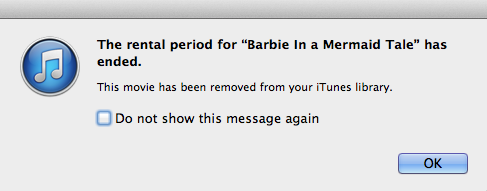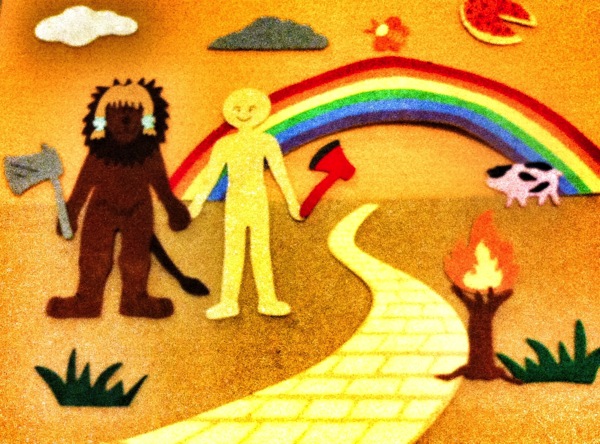It’s not just the reader’s way in, it’s the writer’s way in also, and you’ve got to find a doorway that fits us both.
“There isn’t a single, definitive Doctor Who, but a whole bunch of mutually contradictory, but mutually-reflecting, continuities”
It’s only really when [Doctor Who] returns in 2005 that a singular narrative is imposed again. The effect is rather like the way that, after a mass extinction (in this case the extinction of the TV programme), very quickly whole new ecological niches will open up and biodiversity will increase rapidly, before (as in this case) a new apex predator (the new series) comes along and causes another wave of extinctions.
Andrew Hickey on the influence of Virgin’s Doctor Who New Adventures novel series — one of the major sources of new Doctor Who stories during the period in which the program was off the air.
“Consider the near-miss universe where Doctor Who’s spinoff is instead the downright alarming show Hot Cow Rod“
Torchwood itself is a parodic mirror of Doctor Who – its original function was as a decoy name for shipping film of Doctor Who, the name an anagram of ‘Doctor Who’. […] The idea that Torchwood mirrors Doctor Who is telling, as Torchwood is tacitly presented as the answer to the question ‘what happens when the Doctor doesn’t show up.’ They are defenders of Britain, and, like the Doctor, quintessentially Britain, stemming out of a long British tradition and particularly from the iconography of the Victorian era. But where the Doctor is the eccentric gentleman inventor and the old man guarding the gates to fairy, Torchwood is the militaristic ambition of glorious empire.
Philip Sandifer reviews the Doctor Who series two finale, ‘Army of Ghosts / Doomsday’.
“The rental period for ‘Barbie – In A Mermaid Tale’ has ended”

Mixed feelings.
“The most interesting part of writing a book is the how of telling that story…”
What is most real is the process, not the written representation, but the writer’s attention to the process of writing. That is what gives a work its vitality, and what gives the reader a heightened awareness, an experience of life.
Author Jane Mendelsohn on one of the most fascinating parts (to me) of the writing process: finding a story’s style, the bridge between its conception and execution. Or as Mendelsohn puts it, ‘solving the problem’ of how to tell a particular tale.
“You don’t ice a cake before you’ve made the cake”
Ex-Community and now Modern Family writer Megan Ganz, fifty minutes into her interview with Writers Bloc podcast host J.R. Havlan, shares a technique for getting through first drafts:
(On Community) we did this thing (we called) ‘spit drafting’, which was basically (that) you’re writing a script, you have the outline, you know what’s supposed to happen in the scene, but you’re having a hard time actually writing out those scenes, you’re having a hard time getting the jokes…
So instead of writing dialogue, you type it out and say… ‘I am in a fight with you right now’… ‘I have a response to you fighting’… ‘Well, I think you’re a jerk because you wanted to eat a pastrami sandwich and I didn’t.’ You’re getting the shape of the scene and you’d write it about to the length of how much that scene would take up in your script.
Sounds like a fun way of breaking through first draft paralysis. Also, Ganz admits that the Community writers used to swear in their spit drafts ‘like crazy’, which sounds fun too.
Palindrome method, doth meme or… dammit
I’ve been meaning to post this for ages: Mike Lynch at Nannygoat Hill and Peter J Casey at Major to Minor share the process by which they construct palindromes for their regularly masterful Artwiculate ‘Word of the Day’ entries.
“The raw meat fist you choke …”
“Lion And Hairless Friend Follow The Post-Apocalyptic Yellowbrick Road (With Axes) (And A Pig)”

And that was the last time his daughter asked him to make Fuzzy Felt pictures with her.
My micro life: 12:17pm, 20 May 2013
Having a ploughman’s lunch.
(He’s all “But it’s six hours until dinner and I can’t plough on an empty stomach!”)
“Walls festooned with coiled aluminum probosces signifying high-tech gadgetry”

From Fast Company:
(George) Lucas and his crew left the Lars Homestead set to rot after (filming on Star Wars) wrapped more than 35 years ago. In that time, the domed shell of the homestead sat unprotected from the desert winds, its location known to only a few locals. That is, until recently, when Luke’s erstwhile home was rediscovered by New York-based photographer Rä di Martino.
Imagine how excited we’ll be in 35 years time when a hard disk archivist discovers the digital remains of Jar Jar Binks.
“The first time looking at my website in Internet Explorer”
My micro life: 6:24pm, 10 May 2013
My daughter has brought home a school reader called Mum At Work — an admirable documentary piece which is pleasingly recognisable to us, featuring as it does a main character who works hard, solves problems, and has the rightful respect of her colleagues.
I now feel obliged to write a companion volume, Dad Writes Books At Home — less a documentary, more in the manner of an exposé, featuring as it does a main character who deletes and retypes the same sentence all day, often in his underpants, and who is mental.
“The first televised (Doctor Who) story since ‘The Web Planet’ to feature no humanoid characters other than the regulars”
Fundamentally, a bunch of aliens milling about to ‘Tainted Love’ just isn’t that strange a sight for a 2005 television audience.
Philip Sandifer’s epic ongoing critical history of Doctor Who
has reached the 2005 relaunch. This instalment covers one of my personal favourite episodes of the series, classic and new: ‘The End of the World’.
“The story of the book as technology must be told honestly, without triumphalism or defeatism”
Selling a book, print or digital, turns out to be far from the only way to generate revenue from all the remarkable cultural activity that goes into the creation and dissemination of literature and ideas.
Richard Nash’s essay on capturing the value of a book
is as affirming as it is alarming in its examination of the economics of literary creation.
“The best way to combat piracy isn’t legislatively or criminally but by giving good options”
You can’t use the internet as a marketing vehicle and then not as a delivery vehicle.
Great quote from Netflix chief content officer Ted Sarandos.
“The amount of LEGO we can have is obviously not an issue”
From The Guardian:
Centred around ‘inquiry-based learning’, the idea (behind Denmark’s LEGO® school) is that children are more motivated when they generate their own questions. As one prospective parent of the new school put it: ‘In the UK you’re taught how to pass exams. In Scandinavia you’re taught how to think.’
Me, I went to the LEGO® school of hard blocks.
“They failed to come up with anything that remotely resembled a word”
From a 2002 BBC News item about researchers at the University of Plymouth testing the ‘infinite monkey’ theorem by making available a computer terminal to six monkeys – Elmo, Gum, Heather, Holly, Mistletoe and Rowan – from Paignton Zoo in Devon.
After a month, the Sulawesi crested macaques had only succeeded in partially destroying the machine, using it as a lavatory, and mostly typing the letter ‘s’.
As Karl Pilkington once observed: There hasn’t been one publication from a monkey – and they’ve been around longer than us.
(Here’s Karl Pilkington’s initial take on the infinite monkey theorem from the 8 February 2003 edition of the Ricky Gervais Show on XFM.)
“Listening closely to our own voice, modulating it into more tuneful harmonies”
Writers, like all artists, are Platonists. We have an inkling of something perfect and ideal, which haunts our imaginings and prompts every stroke of the pen or keyboard. We are aware that with a great effort of attentiveness, formulating and reformulating, listening closely to our own voice, modulating it into more tuneful harmonies, we might do something not just good, but perfect. And occasionally in phrase or sentence or paragraph we do just that. But I know of no writer who is not, finally, just that little bit disappointed with the final product.
Rick Gekoski, on trying to bring a concentrated light-heartedness to the act of composition
.
“You have to experiment, and not care about whether the new things actually make sense”
Simplicity is not about making something without ornament, but rather about making something very complex, then slicing elements away, until you reveal the very essence.
Christoph Niemann on the process of creating of his Petting Zoo app for iOS.

